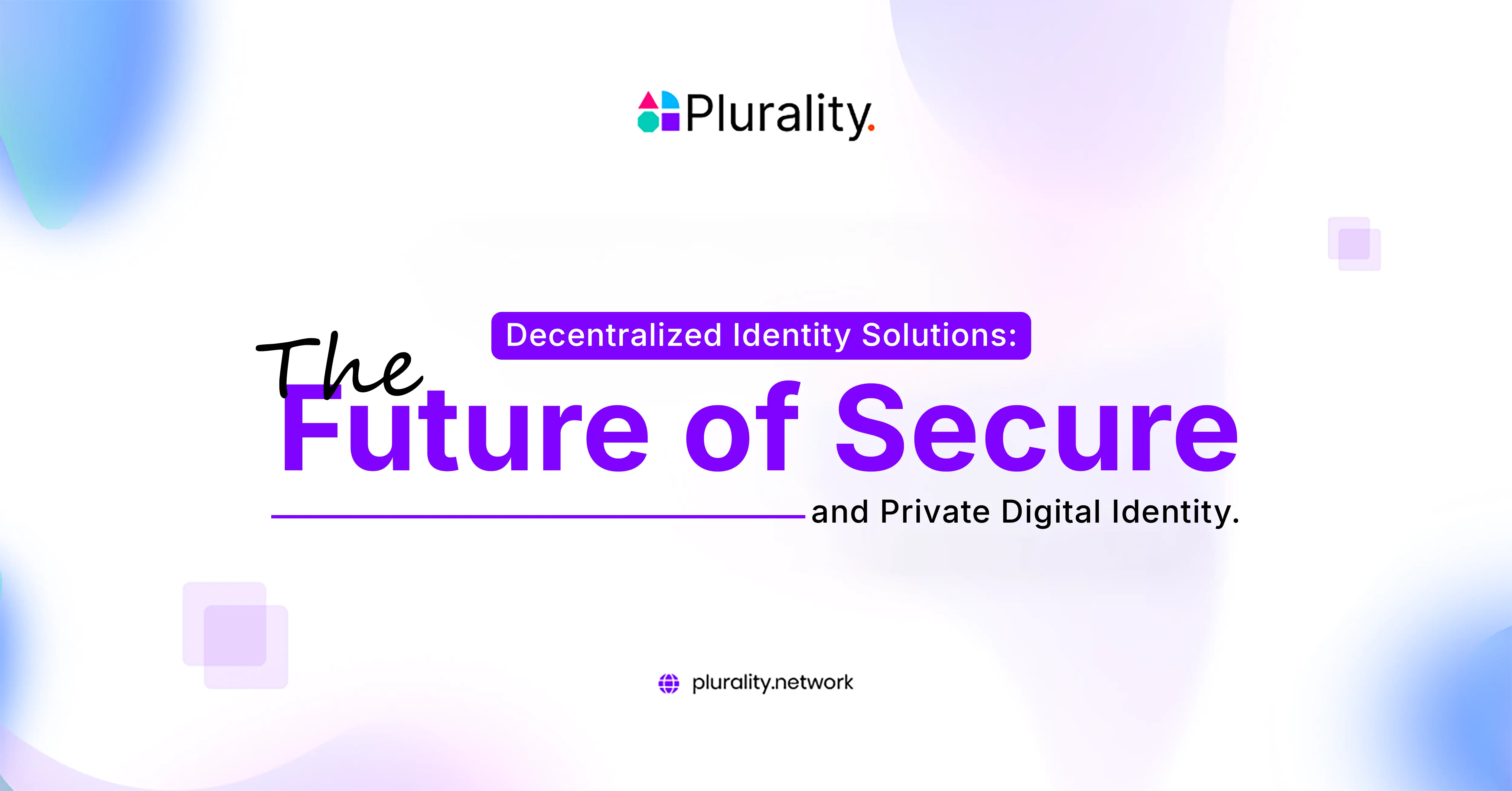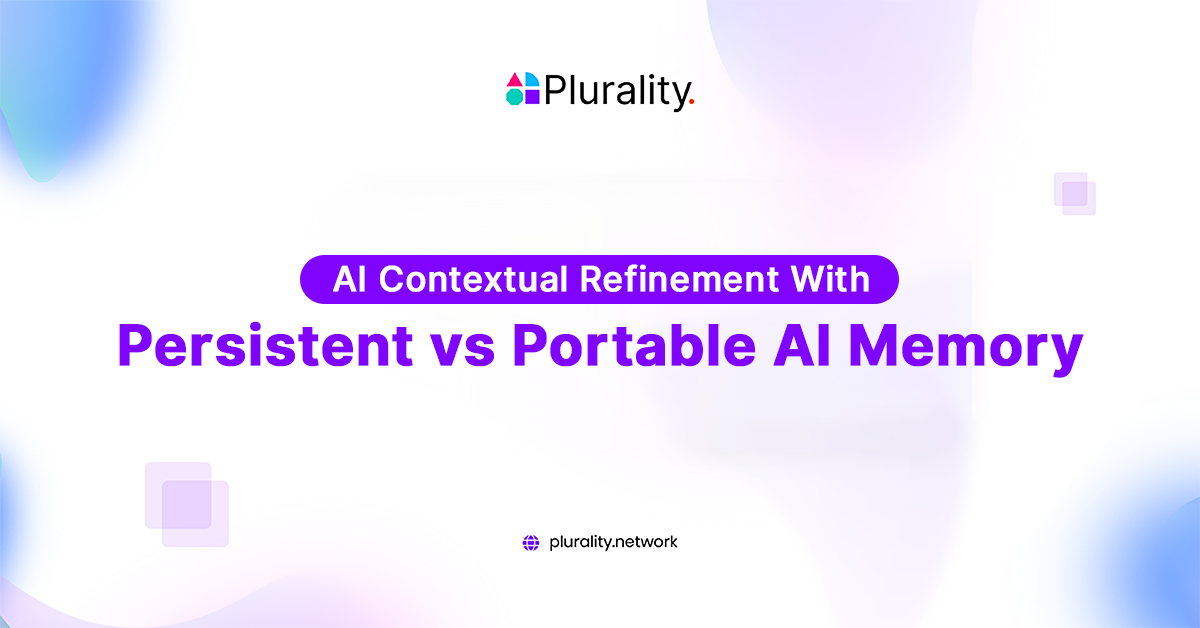Decentralized Identity Solutions: The Future of Secure and Private Digital Identity
By Alev • February 18, 2025

Creating an identity without providing sensitive details is next to impossible on the centralized web, but imagine creating an online account without sharing personal details with a third party. If that were so easy, no centralized databases would hold your sensitive information, no risk of mass data breaches, and full control over your digital identity. Decentralized identity solutions promise these perks and pivot the focus to the privacy-preserving internet.
The core of a user-centric web is a decentralized identity system built on technology that enables user-owned data and selective disclosure based on the user’s consent. This is a fundamental shift from traditional identity systems, which solely rely on centralized databases to verify and store the user’s personal information and in which the user has no control over where and how their data is shared.
DIDs Empower Users, No More Controlling!
Decentralized Identifiers (DIDs) are a fundamental piece of the Decentralized Identity solutions. DID-based solutions not only solve the user’s concerns but also empower them by giving them control over their information and preferences to be shared with platforms.
Rooting this system on a data storage layer that is both censorship-resistant and interoperable with different platforms ensures that users truly own their data and use them interoperably on different systems – allowing true sovereignty over their data.
DID-based systems make users less vulnerable to hacks, data misuse, and identity theft. Self-custodial identity solutions like Plurality’s Smart Profiles ensure that individuals can always reclaim their digital sovereignty. This is a complete shift in how identity has been perceived until now, paving the way for a more open and user-centric web.
True Data Ownership With Decentralized Identity Solutions
Traditional identity systems store and validate personal information using centralized authorities, governments, corporations, and identity providers. This kind of setup leads to a single point of failure that exposes users to security breaches, identity theft, and unauthorized data exploitation. Decentralized identity solutions eliminate this risk by ensuring data ownership remains with the individual rather than a third party.
Having said that, smart profiles offer users true data ownership. Instead of having a fragmented experience while accessing multiple platforms with one preferred identity, users can generate and manage their digital credentials with the next-gen wallet and smart identity solution combined – A smart profile! Instead of storing identity data on a company’s servers, it is encrypted with DID secrets created from threshold cryptography and stored on decentralized storage. Users can then selectively share verified credentials with service providers without exposing unnecessary personal details, enhancing both privacy and security.
Smart Profiles also reduce the reliance on password-based authentication mechanisms, further limiting phishing attacks and credential thefts on insecure servers. All these benefits of DIDs posit that a seamless, frictionless, and secure authentication for online services is only possible with decentralized identity verification mechanisms.
The Role of Web3 Wallets in Enabling Self-Sovereign Identity
Smart profiles are proof that web3 wallets not only have the utility of storing crypto assets but can also become key enablers of decentralized identity. Besides offering wallet features, they can also enable the creation of secure identity vaults that allow users to store, manage, and share verifiable credentials securely and with full control.
Integrating DID protocols makes the authentication process frictionless. It allows selective disclosure of sensitive personal data and reduces the need to hand over sensitive personal data to third-party protocols.
Users can present proof of personhood from their Web3 wallet when interacting with an online service instead of manually entering login credentials. This proof-of-identity model, backed by decentralized data storage, ensures that users always remain in control of their personal information. Unlike traditional login mechanisms, Web3-based identity solutions prevent data tracking and profiling by centralized entities.
Moreover, Web3 wallets support interoperability, allowing users to use the same identity credentials across multiple platforms without creating new accounts. This eliminates redundant onboarding processes while maintaining privacy and compliance.
Secure Digital Identity With Decentralized Data Storage
Traditional identity solutions rely on centralized databases, which are opaque, prone to censorship, and can cause availability issues. Decentralized data storage reduces this risk by distributing encrypted identity data across multiple nodes instead of storing it in a single location.
So, the decentralized web ensures data security and self-sovereignty with frameworks like Verifiable Credentials (VCs) used in Smart Profiles, blockchain technology, and the InterPlanterary File System (IPFS). These frameworks and protocols ensure that the user’s personal information remains secure and tamper-proof and is only available to the rightful owner. On the other hand, centralized data storage poses risks to cyber threats, which makes the decentralized data storage frameworks ideal for minimizing the risks and ensuring privacy preservation.
By leveraging decentralized identity solutions, users no longer have to trust corporations to safeguard their data. Instead, they retain full sovereignty over their identity, deciding who can access their information and under what conditions.
Why Decentralized Identity For Enhanced Digital Security?
Decentralized identity solutions significantly shift digital security, privacy, and user control. As adoption rates grow, these solutions will replace outdated identity management systems that expose and risk users to data breaches and privacy violations.
The benefits of a decentralized identity include the following:
- Enhanced Security: Reduces common cyber-attacks in centralized data storage frameworks, reducing identity theft and fraud.
- User-Centric Data Ownership: Self-custodial identity means full control of personal and sensitive information, and users decide who sees it and when.
- Seamless Authentication: Web3 wallets enable passwordless login, reducing phishing and credential theft risks.
Cross-Platform Interoperability: Users can use the same verifiable identity across multiple services without creating multiple accounts.
Conclusion
With all these aspects to consider, decentralization is changing user preferences and behaviors. Identity management should be transparent and easy for users, and smart profiles make it possible. After all, what is better than having a Web3 wallet with your preferred identity for personalization and data ownership at the same time?
With the advancing blockchain ecosystem, every online interaction is going to rely on DIDs to ensure and offer more security, privacy, and a user-centric experience. This transition from third parties controlling your data to decentralized models is highly required to make the web less scary and more privacy-preserving.



